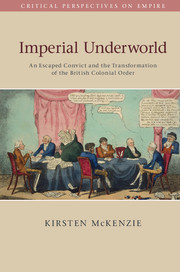Book contents
- Frontmatter
- Contents
- List of illustrations and map
- Cast of main characters
- Acknowledgements
- Map
- Introduction: ‘A soul reared in the lap of liberty’
- 1 ‘Plausible and audacious frauds’: The theatre of imperial politics and reform
- 2 ‘A Daemon behind the Curtain’: Reputation, parliamentary politics and political spin
- 3 Green-bag-makers and blood-hunters: Information management and espionage
- 4 ‘In return for services rendered’: Liberated Africans or prize(d) slaves?
- 5 ‘The dishonorable Court of Gothamites’: Corrupting abolition
- 6 ‘Under the cloak of liberty’: Seditious libel, state security and the rights of ‘free-born Englishmen’
- 7 ‘Unruly subjects’: Political removal and the problem of colonial constitutions
- 8 ‘A conspiracy of the darkest and foulest nature’: The placard affair
- 9 Bring up the body: The many escapes of ‘Alexander Edwards’
- Epilogue: An infamous end
- Bibliography
- Index
1 - ‘Plausible and audacious frauds’: The theatre of imperial politics and reform
Published online by Cambridge University Press: 18 December 2015
- Frontmatter
- Contents
- List of illustrations and map
- Cast of main characters
- Acknowledgements
- Map
- Introduction: ‘A soul reared in the lap of liberty’
- 1 ‘Plausible and audacious frauds’: The theatre of imperial politics and reform
- 2 ‘A Daemon behind the Curtain’: Reputation, parliamentary politics and political spin
- 3 Green-bag-makers and blood-hunters: Information management and espionage
- 4 ‘In return for services rendered’: Liberated Africans or prize(d) slaves?
- 5 ‘The dishonorable Court of Gothamites’: Corrupting abolition
- 6 ‘Under the cloak of liberty’: Seditious libel, state security and the rights of ‘free-born Englishmen’
- 7 ‘Unruly subjects’: Political removal and the problem of colonial constitutions
- 8 ‘A conspiracy of the darkest and foulest nature’: The placard affair
- 9 Bring up the body: The many escapes of ‘Alexander Edwards’
- Epilogue: An infamous end
- Bibliography
- Index
Summary
Within days of one another in the winter of 1823, two men disembarked at the port of Cape Town. Having narrowly avoided shipwreck after the Lady Campbell lost a rudder crossing the Bay of Biscay, John Thomas Bigge arrived on 12 July, accompanied by his fellow commissioner, William Colebrooke. Governor Lord Charles Somerset welcomed Bigge warmly and immediately offered rooms in Government House as his headquarters. Bigge would soon move from these, writing confidentially to the Colonial Office in London that the location might intimidate those who came to give testimony critical of the Cape administration. Bigge's investigations in Australia a few years before had seen increasingly bitter divisions between the commissioner and Governor Lachlan Macquarie. At the Cape, personal relations between the commissioners (Bigge particularly) and Somerset would remain surprisingly cordial. Shifting the location of the Commission's activities was nevertheless symbolic. The colony was about to enter into an increasingly vexatious state of divided authority. An administration already riven by internal division and attracting growing external criticism would be pushed to breaking point as deeply divided political interests sought opportunities to gain the upper hand. As those in the Australian colonies had already discovered, ‘the Commissioner of Inquiry came amongst us as an Angel of Discord.’
Five days before the Commission's arrival, a man who would play an increasingly central role in this upheaval slipped into the colony with far less fanfare. Hailing from Mauritius, the English brig Hero arrived with a cargo of sugar, rum and coffee, plus a passenger calling himself William Edwards. It was common knowledge that the Commission was charged with investigations that all expected would see a comprehensive overhaul of Cape officialdom. From the highest official to the most marginalised slave, its arrival presented possibilities of all kinds. There was the hope of circumventing the established chains of authority by appealing directly to British officials in the metropole. There was the chance of directing policy and influencing public opinion in the mother country. More prosaically, with years and years of paperwork ahead of it, the arrival of the Commission raised hopes of clerical employment. Three days after Bigge's arrival, the commissioner received a letter from William Edwards, detailing his past history and asking for a job as a ‘copying clerk’.
- Type
- Chapter
- Information
- Imperial UnderworldAn Escaped Convict and the Transformation of the British Colonial Order, pp. 25 - 59Publisher: Cambridge University PressPrint publication year: 2016

